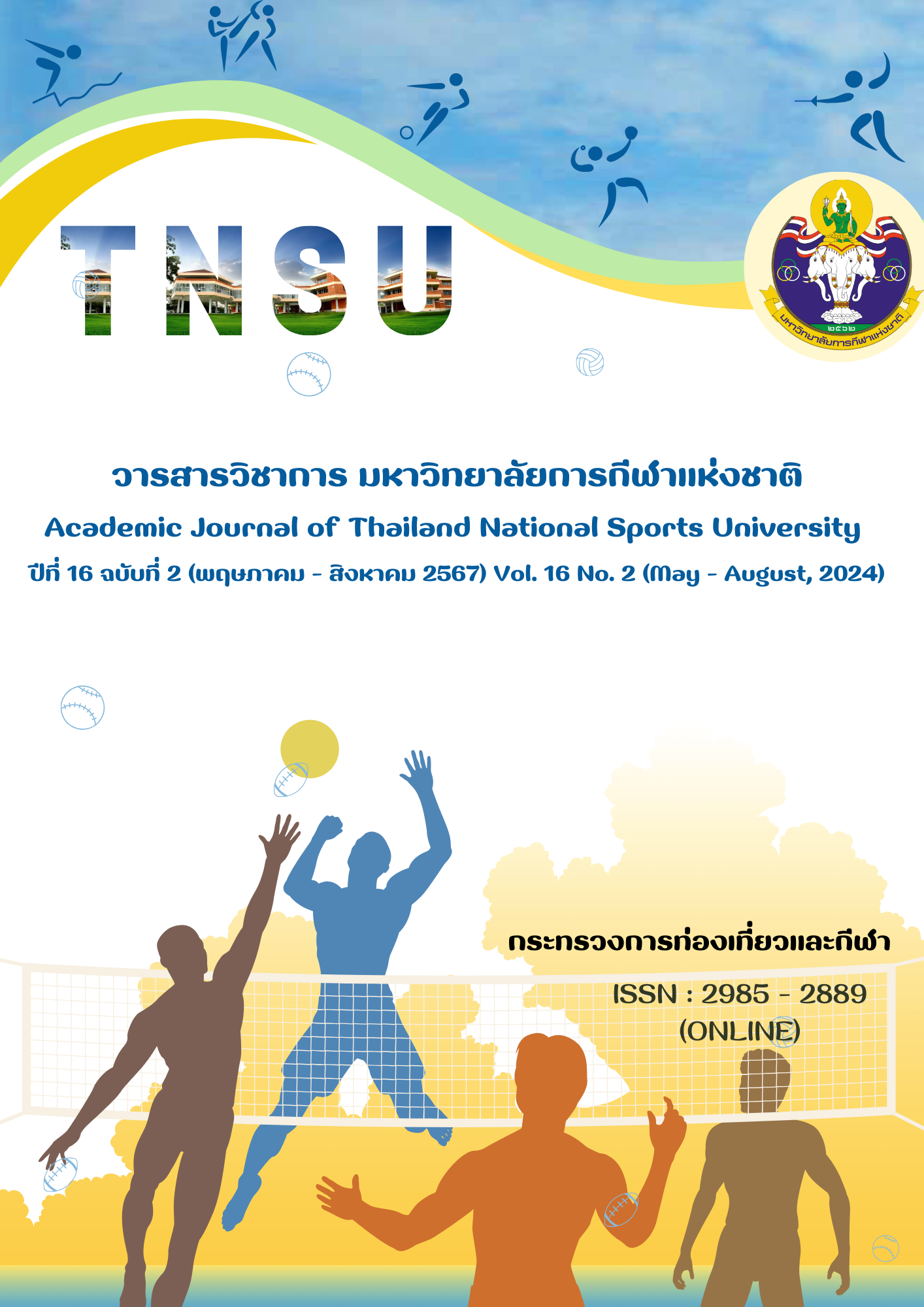AN INSTRUCTIONAL MODEL TO ENHANCE CONSCIOUS MIND AND SELF - REGULATION OF THE SIXTH GRADE STUDENTS BASED ON METACOGNITION, COLLABORATIVE LEARNING, AND SOCIAL COGNITIVE LEARNING THEORY
Main Article Content
Abstract
The research aims to 1) study the current state and need in learning management to strengthen the consciousness and self - regulation abilities of Sixth Grade students to support the development of the learning management model, 2) study the results of the out – for temporary learning management model to promote consciousness and self - regulation ability of learners, This research proceeded with studying the current state and needs to support the development of the instructional model, that was assigned the target groups for studying based on 4 schools under the Nakhon Phanom Municipality, through interviewing 4 related teachers, 12 students, and observing for 4 classes of learning activities to support the draft construct of the instructional model, and then assigned with quasi - experimental method to try - out the model draft with 37 students of research samples for sixth - grade level, in the Academic Year 2022, that obtained by cluster random sampling method. The research tools were composed of: 1) the interviewing forms for teachers and student’s information, and observing forms for class learning activities, 2) learning management plans, 3) the consciousness assessment form, and 4) the Self-regulation ability assessment form. The statistics used in this research study were mean, standard deviation and t - test for Dependent Samples.
The research results found that:
- The target group of teachers needed to concentrate on student development for higher consciousness and self - regulation, based on curriculum goals and the schools needed. Whereas, some students expressed performance and communication with their peers in the context of the need to enhance valuable interaction and positive feelings through rationale support. Therefore, the researcher was interested in studying and developing a learning management model based on the knowledge of the metacognitive concepts, cooperative learning strategy, and social cognitive learning theory for improving consciousness and self-regulation of sixth - grade students, that instructional model was composed of 6 components and including 5 steps of learning activities, In addition, it revealed the result of expert judgment for appropriate learning management model with a high level of 4.10 (S.D. = 0.25).
- The result of the try - out instructional model with the sample group of students that assigned with related learning management had the post consciousness and self - regulation after learning higher than before learning at the level of significance .05.
Article Details

This work is licensed under a Creative Commons Attribution-NonCommercial-NoDerivatives 4.0 International License.
The published article is a copyright of the Academic Journal of Thailand National Sports University. The passage appeared in each article in this academic journal is a perspective of each author which is not related to the journal. Each author is required to be responsible for all components of his/her own article. If there are any mistakes, each author must be responsible for those mistakes on his/her own.
References
Bandura, A. (1997). Self - efficacy: The exercise of control. New York: W.H. Freeman and Company.
Coon, D., & John, O. M. (2011). Introduction to psychology: Gateways to mind and behavior with concept maps and reviews. Cengage Learning.
Erikson, E. H. (1959). Identity and the life cycle: Selected papers. Psychological, 1, 1 – 171.
Hartman, H. J. (2001). Metacognition in learning and instruction: Theory, research and practice. Dordrecht, Netherlands: Kluwer Academic Publishers.
Ivey, A. E., D’ Andrea, J. M., & Ivey, M. B. (2012). Theories of counseling and psychotherapy: A multicultural perspective. CA: Sage Publication. Psychology.
Järvenoja, H., Malmberg, J., Törmänen, T., Mänty, K., Haataja, E., Ahola, S., & Järvelä, S. (2020) A collaborative learning design for promoting and analyzing adaptive motivation and emotion regulation in the science classroom. Front. Educ, 5, 111. doi: 10.3389/feduc.2020.00111.
Johnson, R. T. & Johnson, E. J. (1994). The new circles of learning: Cooperation in the classroom and school. S.l.: s.n.
Joyce, B., Marsha, W., & Emily, C. (2011). Models of teaching. Boston MA: Pearson Education, Inc.
Kohlberg (1981). The philosophy of moral development. New York: Harper and Row.
Moilanen, K. L. (2007). The adolescent self-regulatory inventory: the development and validation of a questionnaire of short-term and long-term self - regulation. J Youth Adolescence, 36, 835 - 848.
Nattanan Chuicomwong, & Ubonwan Songserm. (2023). Development of the instructional model using metacognition approach to mathematical problem-solving ability and self - regulation for upper primary school students. Silpakorn Educational Research Journal, 15(1), 168 - 189.
Nirat Jantharajit, Sarit Srikhao, Phichittra Thongpanit, & Supawadee Kanjanakate. (2023). Development of social skill and self - regulation abilities for 6th grade students based on bandura theory, metacognition, reasoning approach and collaborative learning. Journal of Education Rajabhat Maha Sarakham University, 20(2), 189 - 201.
Nitko, A. J. & Brookhart, S.M. (2011). Educational assessment of students (6th ed.). Boston: MA. Pearson Education.
Office of Academy and Educational Standards. (2017). The guideline of learning management based on core curriculum for basic education, 2551 BE. Bangkok: The Agricultural Co - operative Federation of Thailand Press.
Piaget, J. (1997). The construction of reality in the child. N.Y.: Ballantine Books.
Richard, S., David, A. (1990). Effect of a general practitioner's consulting style on patients' satisfaction: a controlled study. British Medical Journal, 301(6758), 968 - 970.
Slavin, R. E. (1990). Cooperative learning, theory research, and practice. Engle wood Cliffs, New jersey: Prentice - Hall.


